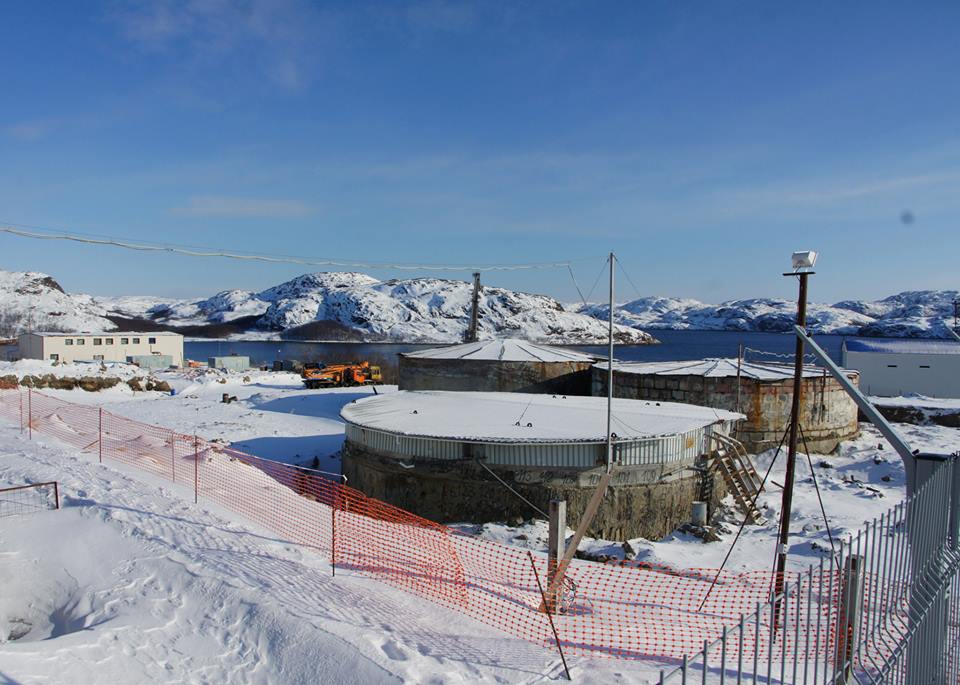
The system built to manage Russia’s nuclear legacy is crumbling, our new report shows
Our op-ed originally appeared in The Moscow Times. For more than three decades, Russia has been burdened with the remains of the Soviet ...
News

Publish date: October 24, 2016
Written by: Oskar Njaa
News
This week, on Wednesday the 26th of October, the Environmental Rights Center Bellona St. Petersburg, organizes a workshop on the history and current status of Andreyeva Bay together with the State Atomic Energy Corporation “Rosatom”, and the Public Council of Rosatom.
The workshop in Murmansk will be attended by representatives from the federal level in Russia, i.e. Member of the State Duma Committee of Energy, Gennadiy Sklyar, as well as representatives for regional authorities, the Minister of Economic Development, and the Minister of Natural Resources and Ecology of the Murmansk region. In addition, international representatives from both Italy, Norway and Sweden will be present at the workshop, as will the European Bank for Reconstruction and Development.
Prospects for the workshop:
Andreyeva Bay once constituted the heart of the Northwestern part of the Soviet Nuclear-powered submarine fleet. The onshore maintenance base located in the bay provided repairs and refueling for submarines in the area. The refueling process led to a big amount of spent nuclear fuel and radioactive waste – solid and liquid – accumulating in temporary storage facilities in the base.
Bellona has been working to secure the site and an open information exchange about such issues in Northwest Russia for more than 20 years. Much has been done at Andreyeva Bay since Bellona first got involved, and there is still much to be done. Most of the radioactive waste and spent nuclear fuel has been secured at the site, and infrastructure is being added and repaired to facilitate the cleanup process. The next big milestone is removal of the hazardous material, which will be loaded onto ships, transported to Murmansk by sea, and then by train from Murmansk to the storage complex at Mayak in Chelyabinsk.
The result expected from the rehabilitation work in Andreyeva Bay is a brownfield – i.e., no buildings, structures, or storage facilities contaminated with radionuclides are to remain in the location of the former base.
Bellona is very much looking forward to discuss the current status of progression at the site in Andreyeva Bay, and we welcome this opportunity for public involvement and information exchange.
Long history lesson:
This year, Bellona compiled a historical summary of the developments regarding the former naval maintenance base at Andreyeva Bay in the form of a digest of our own publications on the subject between 1994 and 2016.
You can find it on or website in PDF-format here.
Quick history lesson:
The storage and subsequent safety conditions at the base were far from satisfactory, and got the attention of the international community in 1993, when Bellona broke a story about a major leakage from a cooling pool for spent nuclear fuel that started back in 1982, leading to radioactive water seeping from the storage facilities and into the Motovsky Gulf of the Barents Sea. This leakage was only dealt with by the Soviet Ministry of Defense in 1989, and caused great concern, both with Norwegian Authorities, as well as other western states.
The attention of the international community that the Bellona Foundation succeeded in marshaling to the issue of the nuclear problems of the Russian Northwest more than twenty years ago has paved way for the decision of a number of nations to play a role in the dismantlement of the nuclear legacy of the Soviet past. Not only technical aid, but also financial support has been acquired from a number of parties over the last 20 years or so.
Bellona sincerely hopes that the ongoing process will lead to a concluding end of the threat from radioactive contaminants in the Andreyeva Bay. We will continue to monitor and comment on the work, reporting on the progress and potential hazards involved.

Our op-ed originally appeared in The Moscow Times. For more than three decades, Russia has been burdened with the remains of the Soviet ...

The United Nation’s COP30 global climate negotiations in Belém, Brazil ended this weekend with a watered-down resolution that failed to halt deforest...

For more than a week now — beginning September 23 — the Zaporizhzhia Nuclear Power Plant (ZNPP) has remained disconnected from Ukraine’s national pow...

Bellona has taken part in preparing the The World Nuclear Industry Status Report 2025 and will participate in the report’s global launch in Rome on September 22nd.